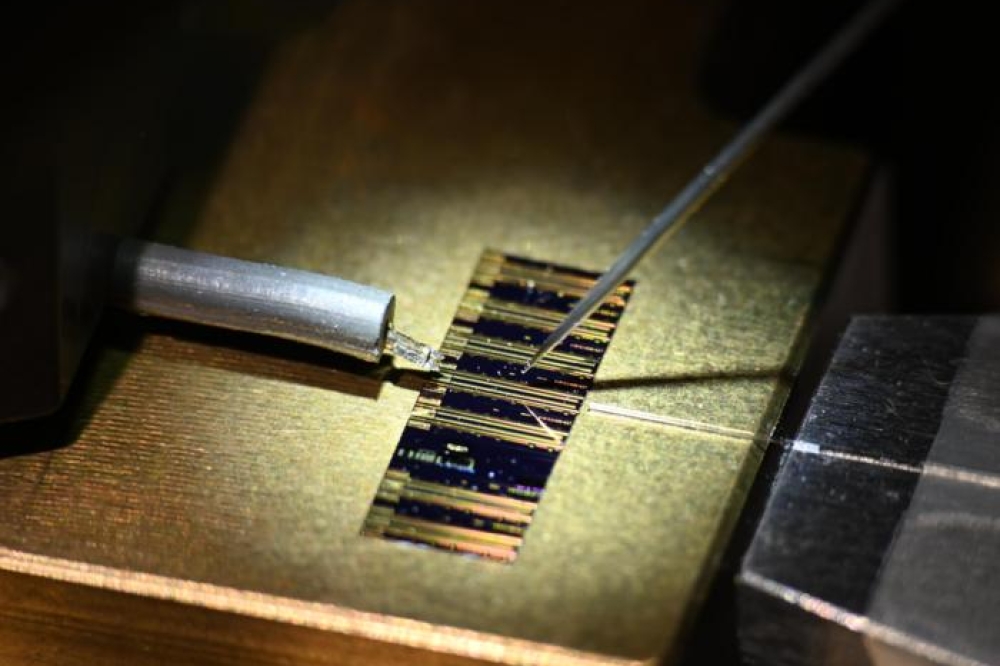News Article
Blue hue high power diode for laser projectors
Osram's latest indium gallium nitride laser diode is also suited to other applications for high power components. These range from laser systems for stage and decoration illumination to medical applications
Osram Opto has unveiled its new high power laser diode, the PL TB450.
Mounted in a compact TO56 package, the blue laser diode has an optical power of 1.4 W. This makes it particularly suitable for high quality professional projectors.

Blue high power laser diode PL TB450
Professional projectors with a luminous flux of more than 1000 lumens are the main area of application for the PL TB450. With its wavelength of 450 nm, Osram says it produces exactly the wanted blue, and with 1.4 W (at room temperature and a current of 1.2 A), the high optical power required. The diode can be used at an operating temperature of 0 to 70 °C.
Its high efficiency of 27 percent means the temperature of the laser will rise only slightly. The efficiency is the ratio of light produced to electrical power consumed. Osram boasts the PL TB450 has a long service life, depending on its use, and up to 10,000 hours at 40° C in continuous operation. The long lifetime of projectors incorporating these devices promotes maintenance-free operation at low energy consumption.

Performance of PL TB450
There are various approaches for the use of the laser diode in a professional projector. Usually, red LEDs are combined with blue high power lasers. The green colour emerges when blue lasers excite a special phosphor to emit light. Red light can also be generated this way so that the projector light source can be designed without red LED, thus turning out even smaller, if needed.
"By starting serial production of a blue high power laser diode in the 1-Watt power range we further strengthen our leading role in the field of blue lasers,” points out Thomas Hoefer, Head of R&D for infrared products and lasers at Osram Opto Semiconductors. “When developing these diodes we were able to draw on many years of experience with other types of lasers. And we could also implement the results of publicly funded research projects.”
The basic technologies for indium gallium nitride laser diodes had been developed in the course of the MOLAS Project, supported by the German Federal Ministry of Education and Research.































